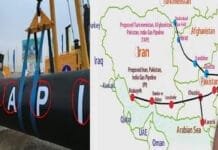INVC NEWS
Islamabad – At the Shanghai Cooperation Organization (SCO) meeting held in Islamabad, India’s External Affairs Minister S. Jaishankar once again delivered a strong, clear message targeting Pakistan. Without directly naming the country, Jaishankar emphasized that terrorism and trade cannot coexist, and if acts of terrorism continue, the growth of commercial activities will remain stunted. His statement, made in the heart of Islamabad, struck a powerful blow at Pakistan, underlining its ongoing issues with cross-border terrorism.
Addressing Global Challenges and Crises
Speaking at the SCO forum, Jaishankar recognized the complex and precarious moment the world is currently facing. He highlighted that the world is enduring multiple crises, with two major conflicts causing widespread disruption. These conflicts are leaving a negative global impact, affecting economies, supply chains, and development. Furthermore, the aftermath of the COVID-19 pandemic continues to heavily burden developing nations, exacerbating existing vulnerabilities. From climate change to financial instability, Jaishankar listed the challenges hindering growth and urged for stronger cooperation among SCO member states to tackle these issues head-on.
By addressing these global challenges, Jaishankar set the stage for his pointed remarks aimed at terrorism and separatism, aligning them as critical factors that destabilize the region and hinder progress.
Peace and Stability: Prerequisites for Development
In a speech filled with strategic undertones, Jaishankar stressed the point that peace and stability are the foundation upon which development rests. He made it clear that terrorism, separatism, and extremism are not just isolated issues, but are directly linked to economic stagnation. When terrorism is present at the borders, it complicates every effort to boost trade, improve energy cooperation, or foster connectivity between nations.
He pointed out that the growth of industries, the expansion of labor markets, and the creation of new employment opportunities are all obstructed by the presence of terrorism. Without peace at the borders, no amount of goodwill or negotiation can lead to substantial progress in fields like energy cooperation, connectivity, or people-to-people ties.
Regional Connectivity and Energy Cooperation
Connectivity between nations is a key driver of regional prosperity, and Jaishankar drew attention to the logistical transformations currently taking place. He pointed out that the region stands on the cusp of major breakthroughs in energy cooperation, supply chain resilience, and infrastructure development. These advancements could usher in a new era of economic growth, benefiting all member states, provided that terrorism and instability are effectively curbed.
Moreover, Jaishankar’s remarks emphasized that connectivity must be enhanced not only in terms of physical infrastructure but also through cultural, educational, and sports exchanges. These people-to-people links, along with environmental and health collaborations, offer boundless opportunities for growth. However, the presence of terrorism acts as a barrier to unlocking this full potential.
India’s Global Initiatives: Solar Alliance, Climate Action, and Disaster Management
Moving beyond regional concerns, Jaishankar also underscored India’s commitment to several global initiatives aimed at tackling climate change and promoting sustainable development. He urged SCO members to engage with initiatives like the International Solar Alliance (ISA), Mission LiFE, and efforts to enhance disaster management capabilities. These initiatives, championed by India, are designed to address pressing global challenges and offer avenues for international cooperation.
Jaishankar also highlighted India’s efforts to promote yoga and millet cultivation as part of its environmental initiatives. According to Jaishankar, the Indian government’s focus on sustainability through these programs is a testament to India’s broader vision of global collaboration. Additionally, initiatives like the Global Biofuels Alliance and the International Big Cat Alliance were presented as key efforts to protect biodiversity and support sustainable ecosystems.
India’s Role in Digital Infrastructure and Women’s Development
In his speech, Jaishankar also spotlighted India’s advancements in digital infrastructure and women-centric development as models for global progress. The Indian government’s investment in digital solutions has had a transformative effect, particularly in ensuring access to public services, financial inclusion, and e-governance. By integrating technology with governance, India is setting an example for the SCO region and beyond.
Additionally, Jaishankar spoke about women-led development as a key pillar of India’s domestic policy, demonstrating how gender-inclusive growth is critical to achieving sustainable development across sectors.



















